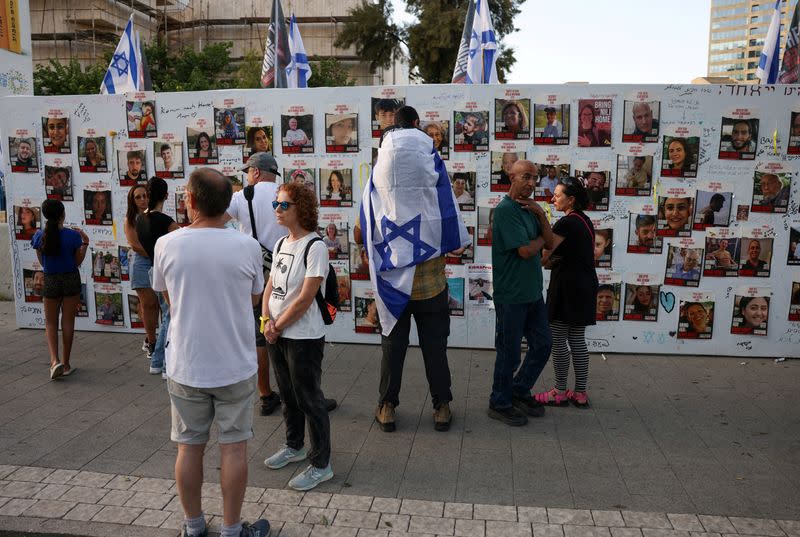More than 300 Americans and their family members have left Gaza but U.S. citizens remain in the besieged enclave and difficult negotiations continue on securing release of hostages taken by Hamas, a White House official said on Sunday.
Those released included U.S. citizens, lawful permanent residents and their family members, , deputy national security adviser, said on the CBS program "Face the Nation."
Finer said a number of Americans who want to get out remain inside Gaza as the Israel-Hamas conflict rages but did not specify how many.
There were around 400 American citizens and their family members, totaling around 1,000 people, who wanted to get out, U.S. Secretary of State Antony Blinken said last week.
Evacuations of injured Gazans and foreign passport holders through the Rafah crossing to Egypt have been suspended since Saturday, but Egyptian, U.S. and Qatari officials said there were efforts to resume them.
Gaza has been under bombardment since Palestinian Hamas gunmen on Oct. 7 killed what Israel says were 1,400 people and took more than 240 captive into Gaza.
Difficult negotiations continue on how to secure the release of hostages, including some Americans, taken by Hamas in the attack, Finer said.
"Those negotiations are going on quietly behind the scenes. They have taken longer than any of us would like," Finer said. "But we continue to believe that there is the possibility of getting a significant number of these hostages released."
President Joe Biden on Wednesday spoke about the need for a pause in the hostilities to allow hostages to get out, and the White House has said it supports a "humanitarian pause" to allow aid deliveries to Gaza.
Gaza health authorities have said more than 9,770 Palestinians have been killed by Israeli strikes. Israel has said it is aiming its attacks at Hamas, not civilians, and accuses the group of using them as human shields.
US making intense effort to get hostages out of Gaza, says official.
U.S. officials are making intense efforts to gain the release of hostages held by Hamas militants in Gaza, but there is no guarantee of success or a timeframe, a senior Biden administration official said on Friday.
The official, briefing reporters on condition of anonymity, said there was "indirect engagement" aimed at finding a way to get the hostages out but that the work was extremely difficult.
Hamas, which rules the Palestinian Gaza Strip, killed 1,400 people and took more than 240 others hostage in an Oct. 7 assault in southern Israel.
Many of the hostages are still being held in Gaza, where the Israeli military has launched air strikes and a ground assault and imposed a siege. Gaza health officials say more than 9,250 Palestinians have been killed.
The official said it would require a "very significant pause in the conflict" to get the hostages out.
"It is something that is under a very serious and active discussion... There is no agreement as of yet to actually get this done, but it's something we're working on extremely hard," he said.
"We're hopeful and doing everything we possibly can to get the hostages out, but there's absolutely no guarantee a) that it is going to happen or b) when it's going to happen," the official added.
"We are going to do all we possibly can to make sure that all the hostages of all nationalities come out of Gaza. So there's an active process going on here with multiple lines of effort, including indirect engagement to try to find a framework to get the hostages out of Gaza," the official said.
The official said the administration was also negotiating with Hamas over allowing foreign nationals trapped in the tiny enclave safe passage out of Gaza.
Explaining why it took "so long" to get foreign nationals out, the official said Hamas conditioned the release of foreigners on wounded Palestinians being able to exit as well.
"But the list that was provided, once it was vetted, (about) a third of the wounded Palestinians on the list were members of Hamas... That was just unacceptable to Egypt, to us, to Israel," the official said.
"And so this went on for some time. Eventually, what was worked out was that the wounded Palestinian civilians leaving with the foreign nationals were not Hamas fighters," the official added.



